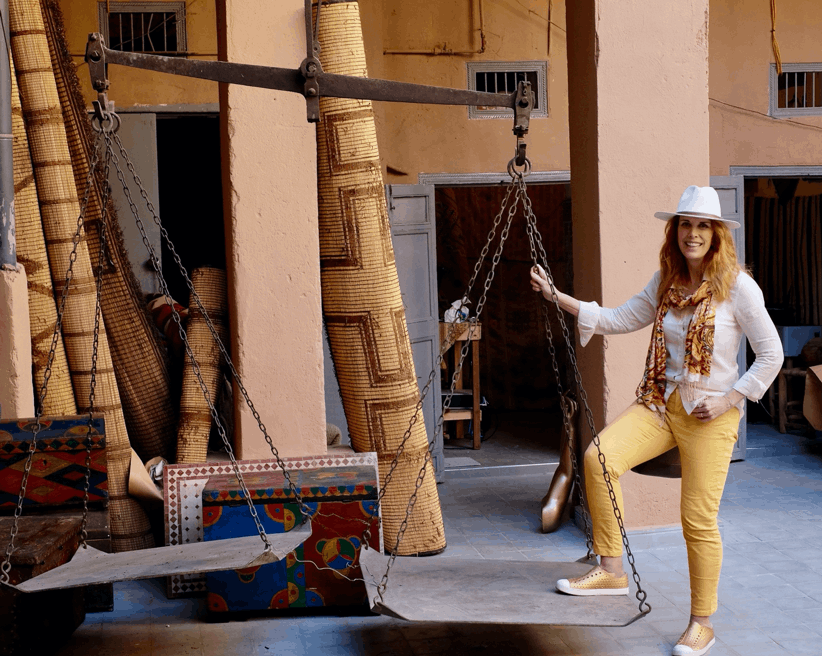Marrakesh, Morocco

Apparently these large scales were used in parts of Africa to weigh prospective wives so prospective grooms knew how many cows he’d owe the bride’s family.
“Get on them,” our guide urged me. “Your husband can see how many cows he would have had to pay for you.”
Husband intervened. “Uh, I think we’ll pass. That is, unless you also want to know how much my eviscerated carcass would weigh.”
“Good call, honey,” I said sweetly, taking his arm.
Later when we were strolling the outskirts of the medina, we passed a boy keeping watch over a trio of cows.
“Americans?” he called. When I told him, yes, he waved us over to talk.
We chatted for a bit—differences between Morocco and the States, favorite video games—until Husband asked about bride dowries. The boy said in Moroccan society, a groom was not allowed to marry without first offering the bride’s family a dowry.
“So women are essentially sold—” I began.
Ever-diplomatic Husband interrupted. “How many of those would I have had to pay for my bride?” He gestured at the three cows, pretending obliviousness to my glare.
The boy gave me an appraising look, then shook his head. “I do not think there are enough cows in Marrakesh for her dowry. You would need to pay gold.”
“I’m not sure there’s enough gold in Marrakesh,” Husband said. “Morocco, even.”
Yes, I still think the idea of grooms “paying” for brides is awful. But I have to admit, I liked Husband’s response.
